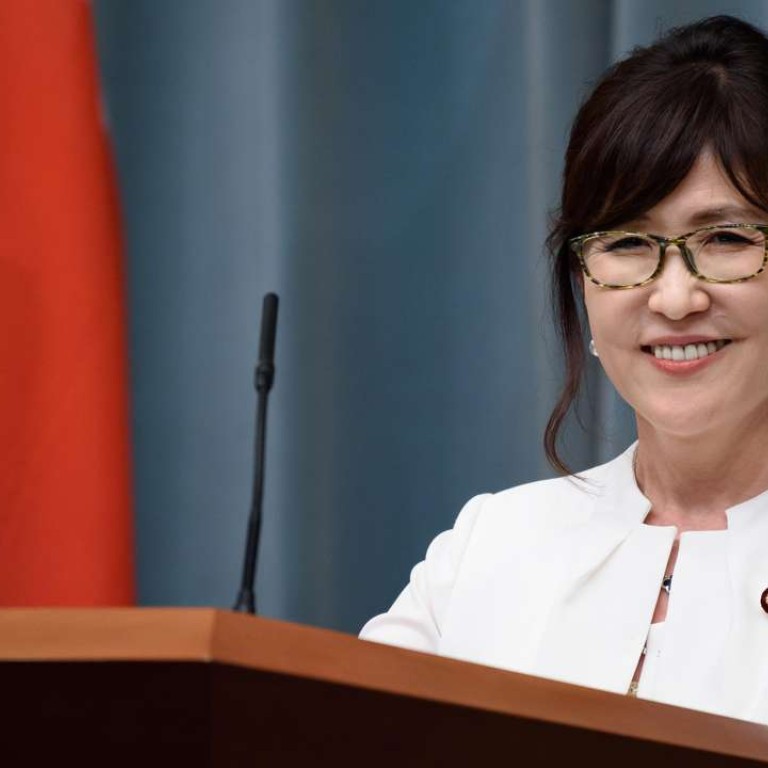
Defence assets of hawkish new minister Tomomi Inada under scrutiny
A sizeable portion of shares owned by Defence Chief Inada are in major defence contractors to the government
Appointed in a reshuffle in August, 57-year-old Inada declared 181.78 million yen (HK$13.84 million) in assets, the largest of the 120 members of the cabinet, whose average assets came to a more modest 40.18 million yen.
The vast majority of Inada’s assets are in property, in both Tokyo and her home constituency of Fukui Prefecture, on the Sea of Japan or East Sea.
Citing the asset disclosure documents for newly appointed ministers, The Mainichi newspaper reported that Inada “owns stocks in three major defence contractors under her husband’s name”.
Of the Inadas’ 260,000 shares that are held in 41 companies, 8,000 shares are in IHI Corp, 6,000 are in Kawasaki Heavy Industries Ltd, and a further 3,000 are in Mitsubishi Heavy Industries Ltd.

The Mainichi reported that the Ministry of Defence’s Acquisition, Technology and Logistics Agency placed orders worth 263.2 billion yen with Mitsubishi Heavy in 2014. Equipment valued at an additional 191.3 billion yen was ordered from Kawasaki Heavy and a contracts worth 61.9 billion yen were signed with IHI.
The newspaper claimed Inada had “acquired stocks under her husband’s name sometime after September 2014”, when she left her post as minister for administrative reform.
Under a “guideline” approved by the cabinet in 2001, ministers are requested to refrain from buying and selling stocks while in office.
“I feel that there is a clear clash of interests here and it is possible that this could cause some political problems for Prime Minister Abe, who has been relatively scandal-free since he has been in office,” said Stephen Nagy, an associate professor of politics at Tokyo’s International Christian University.
“It is possible that something like this could push ordinary Japanese people in the direction of increased cynicism towards politicians because we have seen the defence budget rising 2 per cent or so a year in recent years and owning shares in contractors means that she would directly benefit,” Nagy told The South China Morning Post.

On the other hand, he pointed out, Japan’s defence budget was already increasing because of a more assertive China before Inada took office and she is a widely admired minister in conservative circles.
“She is from an impeccable conservative background and is one of only three women in the cabinet,” he said. “And he has a way of ensuring that she stands out, which has given her confidence over the years.”
Inada has previously triggered controversy dismissing the claims of comfort women, the young women from mainland Asia forced into sexual slavery for the Japanese military before and during the second world war.
Since taking office, however, she has managed to dodge questions on her interpretation of some of the historical issues that still bedevil Tokyo’s relationships with other countries in the region.

